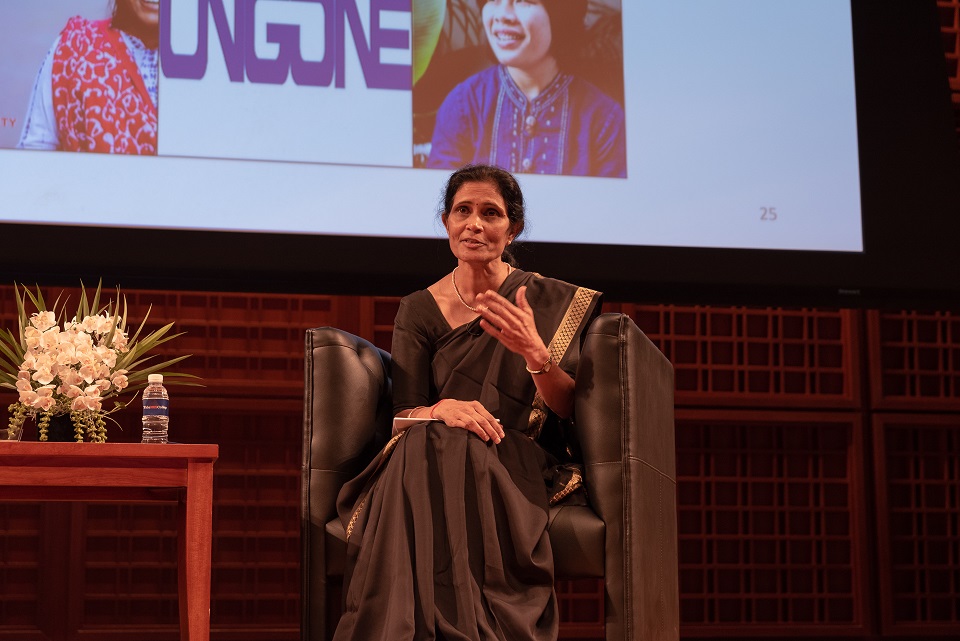Sound Governance, Strong Foundation
 Nirmala Rao, Vice Chancellor of Asian University for Women (AUW) in Chittagong, Bangladesh, believes that “good governance is what underpins a well-run university.” Governance and leadership, in her view, have a symbiotic relationship. “A good leader can invigorate governance, and good governance can sustain leadership,” she said. That outlook is informed by her three decades of serving in senior management in academia, including nine years as Pro-Director of the School of Oriental and African Studies (SOAS) at the University of London, and by her research on local and metropolitan governance.
Nirmala Rao, Vice Chancellor of Asian University for Women (AUW) in Chittagong, Bangladesh, believes that “good governance is what underpins a well-run university.” Governance and leadership, in her view, have a symbiotic relationship. “A good leader can invigorate governance, and good governance can sustain leadership,” she said. That outlook is informed by her three decades of serving in senior management in academia, including nine years as Pro-Director of the School of Oriental and African Studies (SOAS) at the University of London, and by her research on local and metropolitan governance.
AUW’s mission is to educate and empower a rising network of women leaders through the transformative power of liberal arts and sciences education – a mission that holds strong appeal for Professor Rao and her colleagues. “The founder, trustees, faculty, and staff all have a passion for the mission,” she said, “and are committed to quality, relevance, and impact.” But AUW is a young institution – it welcomed its first class of students in 2008 – so when Professor Rao took the vice chancellor role in 2017, she emphasized the need to have clear structures, processes, and lines of communication in place. “It’s important in order to build capacity and avoid risks that would affect sustainability,” she advises, otherwise leaders, administrators, and faculty cannot give their full attention to achieving the mission.

In 2019, AUW graduated its seventh cohort of students.
Focusing on AUW’s mission means developing the leadership potential of young women from 19 countries across Asia and the Middle East. Most of them are first-generation university students, often from poor rural villages, regions shaped by conflict, or even the shop floor of garment factories. “AUW is an amazing place because of the way it recruits girls, the way they are taught, and the way the girls respond,” Professor Rao explains. AUW recruits girls who demonstrate empathy, courage, team-building skills, and the ability to articulate ideas, among other traits, because it considers these attributes to be essential for leadership.
The AUW curriculum builds upon these qualities. “Critical thinking, reasoning, and questioning are embedded in coursework,” Professor Rao said. “Students also do project-based work, for example, to develop situational awareness, which would help them anticipate what is coming, and assess risk. These types of projects help them collaborate, gain confidence in public speaking, and solve problems.” Over time, Professor Rao and her colleagues hope, this type of training will foster a sense of social tolerance in students, help them frame and develop debates, and shepherd them towards their own visions for social change.
That empowering approach to teaching and learning appeals to faculty as well as students. The message that Professor Rao wants to share is that sound governance builds a stable foundation from which committed educators can drive change and innovative approaches that can flourish.
